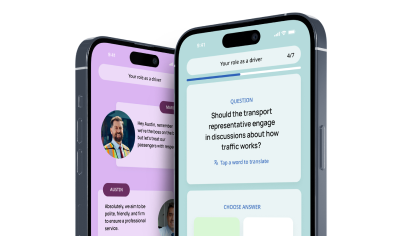Our guide for preparing a food allergy training course for your company
The significance of food safety training for employees extends far beyond fulfilling regulatory requirements; it's a pivotal aspect of preserving the integrity of the food supply chain. This education arms employees with the necessary knowledge and skills for handling, preparing, and serving food in a safe and hygienic manner. As the food industry continues to expand and transform, businesses must ensure their workforce remains proficient and up-to-date with the latest standards and regulations.
Food safety training serves as a dual benefit, safeguarding the establishments and their clientele. By equipping employees with a thorough understanding of food processing practices, businesses can mitigate the risks associated with foodborne diseases and contamination. This dedication to maintaining high standards in food service helps protect consumer health and bolsters a company's reputation, fostering trust and loyalty among its customers.
Additionally, investing in a comprehensive food processing training program can benefit businesses financially. By averting incidents related to food safety and the possibility of product recalls, organisations can sidestep the financial strain and damage to reputation that such crises could entail. Moreover, a well-trained workforce is synonymous with increased efficiency, enhancing productivity and customer satisfaction.
2. Identify training needs for your employees
Before diving into the intricacies of food allergen training, it is essential to assess the specific training needs of your employees. Start by identifying the common food allergens and understanding their potential associated risks. Consider the nature of your business, the menu items served, and the frequency of guest interactions. This information will serve as a foundation for developing a comprehensive training program.
Furthermore, consider conducting a survey or meeting with your staff to gather insights into their existing knowledge and comfort levels when dealing with food allergies. This step can help you tailor the training to address gaps in understanding and ensure that all employees are equipped to handle allergy-related situations confidently and effectively.
3. Select the right training tools and resources
Choose the most suitable training tools and resources to deliver the content effectively. Consider using written materials, videos, interactive quizzes, and hands-on demonstrations. Utilising various resources will cater to different learning styles, ensuring maximum understanding and retention.
4. Implement the training program
Roll out the training program to your employees in a structured and organised manner. Schedule dedicated training sessions or incorporate the training into existing employee meetings. Encourage active participation and provide opportunities for employees to ask questions and seek clarification.
5. Evaluate training effectiveness
Regularly assess the effectiveness of the training program. Monitor employees' comprehension and application of the knowledge gained during the training. Consider conducting quizzes or practical assessments to gauge their understanding. Use the feedback received to make necessary improvements and modifications to the training program.
6. Establish a culture of allergy awareness
Instill a culture of allergy awareness throughout your organisation. Regularly communicate the importance of food allergen training and encourage employees to remain vigilant when handling foods with allergens. Empower them to confidently address guests' queries and concerns about potential allergens in the menu items.
Creating a safe and inclusive environment for individuals with food allergies is not only a legal requirement but also a moral obligation. By investing in comprehensive food allergens training, you are protecting your customers and safeguarding your business reputation. Allergies can range from mild to life-threatening, and your employees must understand the severity of the issue.
During the course of the training program, it is essential to emphasise the importance of communication within the team. Encourage employees to share any concerns or observations regarding potential allergen exposure. By fostering an open and supportive environment, you can ensure that everyone is actively involved in maintaining a safe dining experience for all customers.




